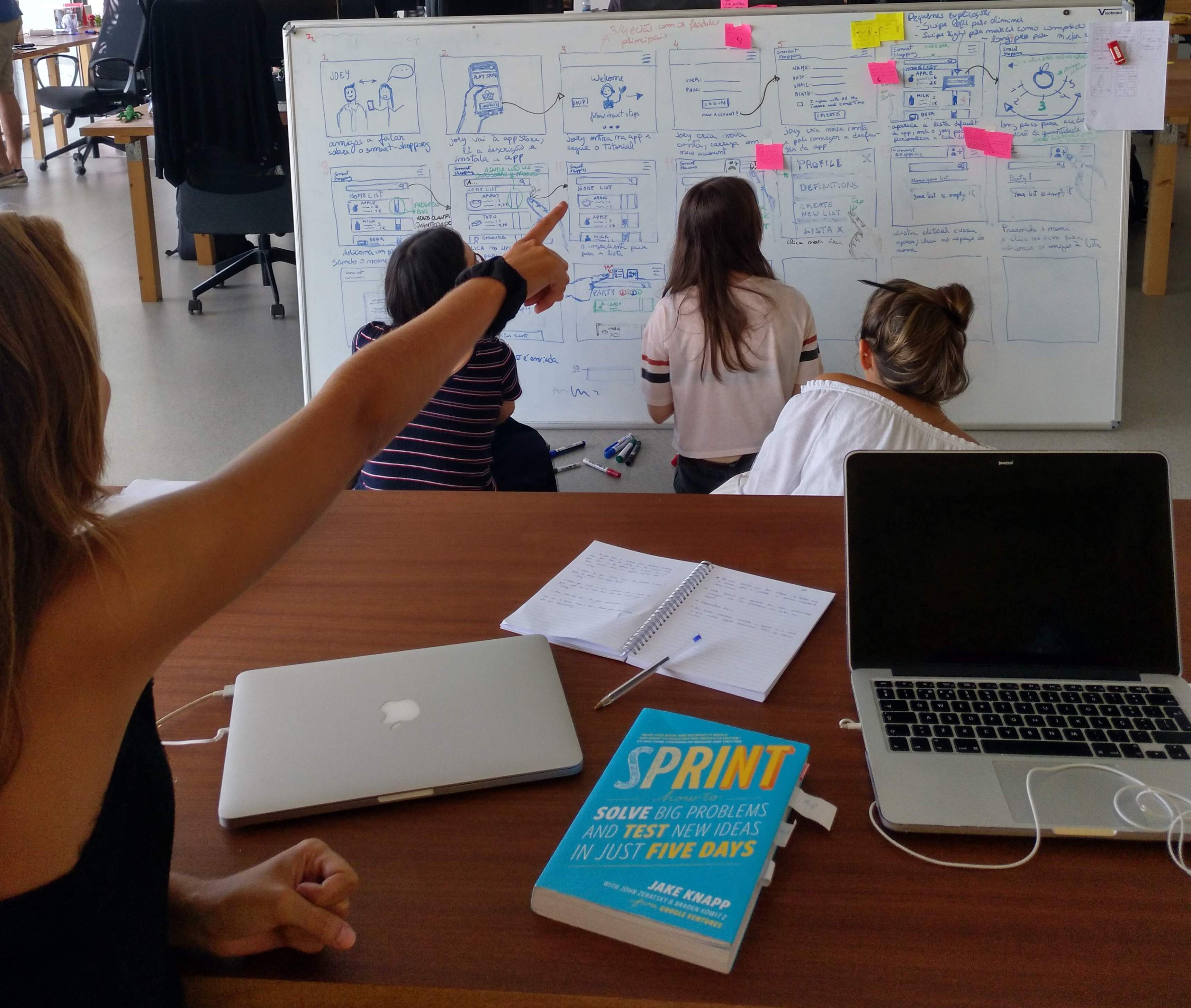
Today, AI is more than just a buzzword—it’s a vital tool seamlessly integrated into daily operations. At Whitesmith, this integration is at our core. Whether automating repetitive tasks, assisting with complex coding, or refining written communication, AI enables our team to work smarter and faster. It has become an indispensable companion, accelerating tasks and unlocking efficiencies.
Enhancing efficiency and quality
AI has a huge impact on our team, primarily in three key areas where the results are being seen, particularly increasing our efficiency, but also the quality of our work.
-
Increased productivity: AI streamlines routine processes, allowing teams to focus on more strategic initiatives.
- Our engineering teams, leveraging AI tools, have achieved 66% faster code deployment to production in several tasks.
-
Quality improvement: AI not only speeds up work but also enhances its quality, empowering individuals to tackle challenges in new ways, such as learning unfamiliar programming languages or exploring innovative solutions.
- Our non-technical product managers can now create functional prototypes in just two hours.
-
Empowering innovation: With AI handling repetitive tasks, employees can focus on creative problem-solving and strategic thinking, fostering a culture of experimentation and continuous improvement.
- Our product teams analyze over 10,000 customer reviews in under an hour, incorporating valuable feedback into their discoveries.
These benefits are not merely coincidental results of experimentation but represent a strategic approach to the future of product teams. However, the most crucial aspect for us is that our teams are continuously experimenting with how AI can enhance their work while recognising where humans can have the greatest impact. We believe this will be one of the major skills needed for the revolution we are seeing occurring in the next few years.
Overcoming adoption challenges
Despite its advantages, integrating AI presents its own set of challenges. Our culture of experimentation and adaptability, combined with our passionate team, has helped us not only identify and embrace obstacles that many organizations face but also anticipate future challenges the industry will encounter. By actively working on these issues—developing new mental models and experimenting with tools—we gain invaluable experience that allows us to stay ahead of the curve. This proactive approach helps us understand the complexities of AI integration within products and workflows and prepares us for the evolving landscape of AI-driven innovation. Some of the key and high level challenges we recognize as ongoing include:
- Seamless integration: Adapting AI tools to fit existing systems can be complex, often requiring custom solutions and workflow adjustments.
- Learning curves: To maximize AI’s capabilities, continuous learning is essential, as models evolve rapidly.
- Data privacy and trust: With sensitive data at stake, balancing automation with human oversight is crucial to maintaining security and reliability.
- Ethical considerations: Organizations must ensure AI deployment is sustainable, unbiased, and aligned with societal values. This includes maintaining long-term sustainability in AI-assisted product development and ensuring healthy codebases.
- New UX/UI for AI: As AI becomes more integrated into products, designing intuitive and user-friendly AI-driven experiences presents a new challenge. Ensuring transparency, usability, and trust in AI interactions is crucial for adoption.
- Evolving product development frameworks: Traditional product development approaches must adapt to AI’s iterative and data-driven nature. Organizations need to redefine their processes to incorporate AI-driven insights and automation effectively, for humans and AI to collaborate effectively.
Real-world applications transforming customer experiences
Despite these challenges, AI is significantly enhancing customer experiences. However, a cultural shift is necessary—AI will not replace (in the short term) all human roles or achieve 100% automation. Instead, AI serves as a powerful asset that enhances human expertise rather than replacing it completely. Human oversight remains essential to validate AI outputs, ensuring accuracy and quality. Besides that human creativity, empathy and vision for the future remain powerful assets that so far are unique to our human condition. That’s why the collaboration between human insight and AI efficiency is paving the way for more robust and innovative business solutions.
From our experience, even the most complex and automated AI processes require a clear understanding of the problems being tackled and the processes to be enhanced. That’s why we always advise our customers to start with an iterative approach, focusing on simple, repetitive tasks that save valuable time, such as:
- Automated reporting: AI extracts and structures data from multiple sources, streamlining report generation and reducing manual workload, leading to more timely and informed decisions.
- Enhanced communication: AI-powered writing assistants help draft professional emails, proposals, and reports, improving communication speed, clarity, and consistency.
- Coding and technical assistance: AI-driven coding tools empower non-technical staff, breaking down traditional barriers and fostering cross-functional collaboration.
- Meeting rranscriptions and summaries: AI solutions convert discussions into actionable insights, eliminating tedious note-taking and ensuring critical information is retained.
All these advancements still require one crucial element: a human in the loop.
Looking to the Future
The journey of AI integration is just beginning. Organizations are continually exploring how AI can further revolutionize processes, from automating complex workflows to providing real-time strategic insights. A promising frontier is AI’s ability to not only assist but also validate work, ensuring even higher standards of efficiency and reliability.
As AI technology evolves, so too does its potential to transform every aspect of business operations and customer interactions. Embracing these changes is key to staying competitive in an increasingly dynamic marketplace.
The Non-Technical Founders survival guide
How to spot, avoid & recover from 7 start-up scuppering traps.
The Non-Technical Founders survival guide: How to spot, avoid & recover from 7 start-up scuppering traps.
